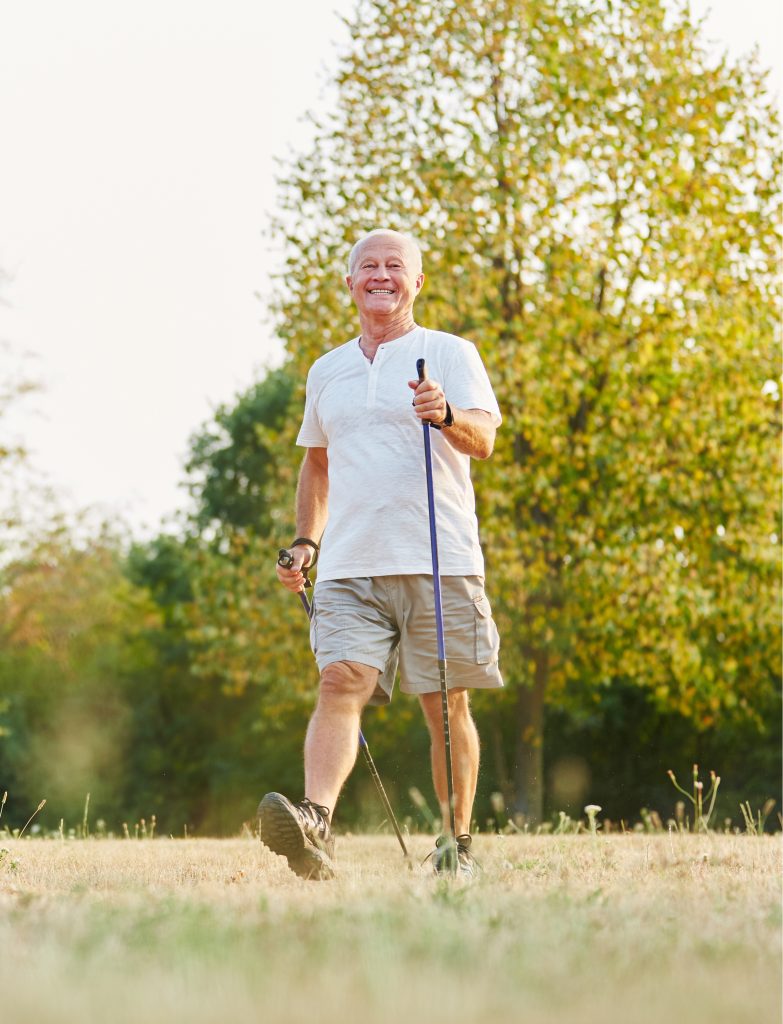3 simple habits which affect 50% of our health
Our health and life expectancy is only 25% dependent on genes, while 10% experts believe it depends on the quality of health care, and the remaining 65% depends on our lifestyle, eating habits and chance. The most important cornerstone so to speak, in the foundation of our health is made up of three aspects: physical activity, fresh air, and moderation.

I move, therefore I am
The World Health Organization warns us that a lack of physical activity and a sedentary lifestyle is one of the greatest causes of mortality in the whole world. Recently, the sedentary lifestyle was compared to smoking and cigarettes; a week of sudden inactivity endangers our health to the same degree as if we were to start regularly drinking alcohol in large doses and smoking 10-15 cigarettes a day. Moreover, a sedentary lifestyle affects our cognitive abilities; physical activities help increase the volume of the hippocampus, the part of the brain which is responsible for our ability to remember and analyze information. If we spend a lot of time sitting or lying down the hippocampus becomes smaller.
The WHO gives fairly simple recommendations: children and teens up to 17 years old need at least 60 minutes of moderate and intense physical activity daily, adults up to age 64 need no less than 150 minutes of aerobic exercise per week, or 75 minutes of intense training. The recommendation for those over 65 is 150 minutes per week of moderate physical activity if possible. If people in this age group have limited mobility, they should do exercises designed to improve balance and keep them from falling at least three times a week or more.
In order for sport and exercise to be the most effective, experts recommend alternating moderate and intense exercises. For example, after a 30-minute walk or jog, you should spend 10 minutes doing more intense exercises which cause your pulse to quicken and then return to your walk/jog.
Take a deep breath
In order to make up for the lack of vitamin D, which regulates our circadian rhythms which in turn support our metabolism and also seriously affect the health of our cardiovascular and nervous systems, we need to spend 20 minutes a day in the sunlight. The morning light is considered to be especially good for you; if you take a walk between 8 am and 12 pm it will be twice as effective as the same walk taken in the evening.

However, sunlight is not the only useful resource – in order to stay healthy, we also need fresh air. When we spend a lot of time inside, the amount of oxygen steadily reduces and there comes a point where there is not enough oxygen to keep all the systems in our body functioning normally. Lightheadedness, nausea, head pain, irritation, heaviness, or tiredness could all be signals that it is time to air out the room – or even better – go for a walk. Even though they all sound like symptoms of illness, it’s entirely possible that you just aren’t getting enough fresh air. Open the window and sleep in a well-ventilated room, there’s a good chance you will feel noticeably better. Remember, sleeping outdoors or in a well-ventilated room is much more effective than sleeping in a stuffy room.
If you regularly (for at least half an hour a day) take a walk at a moderate pace outdoors, you can stabilize your blood pressure, improve your digestion, normalize your metabolism, strengthen your lungs, increase your cognitive abilities (20% of all the oxygen in our bodies goes to the work of the brain) and even feel happier, since oxygen is involved in the production of serotonin, aka the happiness hormone.
Nothing in excess!
There is a reason that ancient philosophers called us to moderation: modern doctors and scientists completely agree with them and believe that self-control in one’s diet only leads to good things. “The dose makes the poison” a quote from Paracelsus, is not only applicable to medication.
So if you are not ready to listen to the research affirming that there is no such thing as a safe dose of alcohol, try to at least limit your intake to three times a week. Most scientists believe this to be the minimal dose you can ingest without seriously harming your health. In addition, it’s best not to drink alcohol right before you go to bed since even one glass of wine can lower your sleep quality by 40%.
With regards to food, nutritionists assert that the majority of us eat 25-30% more at each meal than we need in order to be satiated. And if you were to replace your plates at home with smaller ones, eat more slowly without being distracted by discussions or watching the news, and chew your food properly, you might not even notice the difference.
If we sum up the results, it doesn’t seem very daunting; in order to give yourself a few more years of life its enough to take a half-hour walk outdoors every day, exercise, exclude alcohol (or at least decrease your intake) and not overeat.
Learn more about LONGEVITY
What to learn more? Read here:





